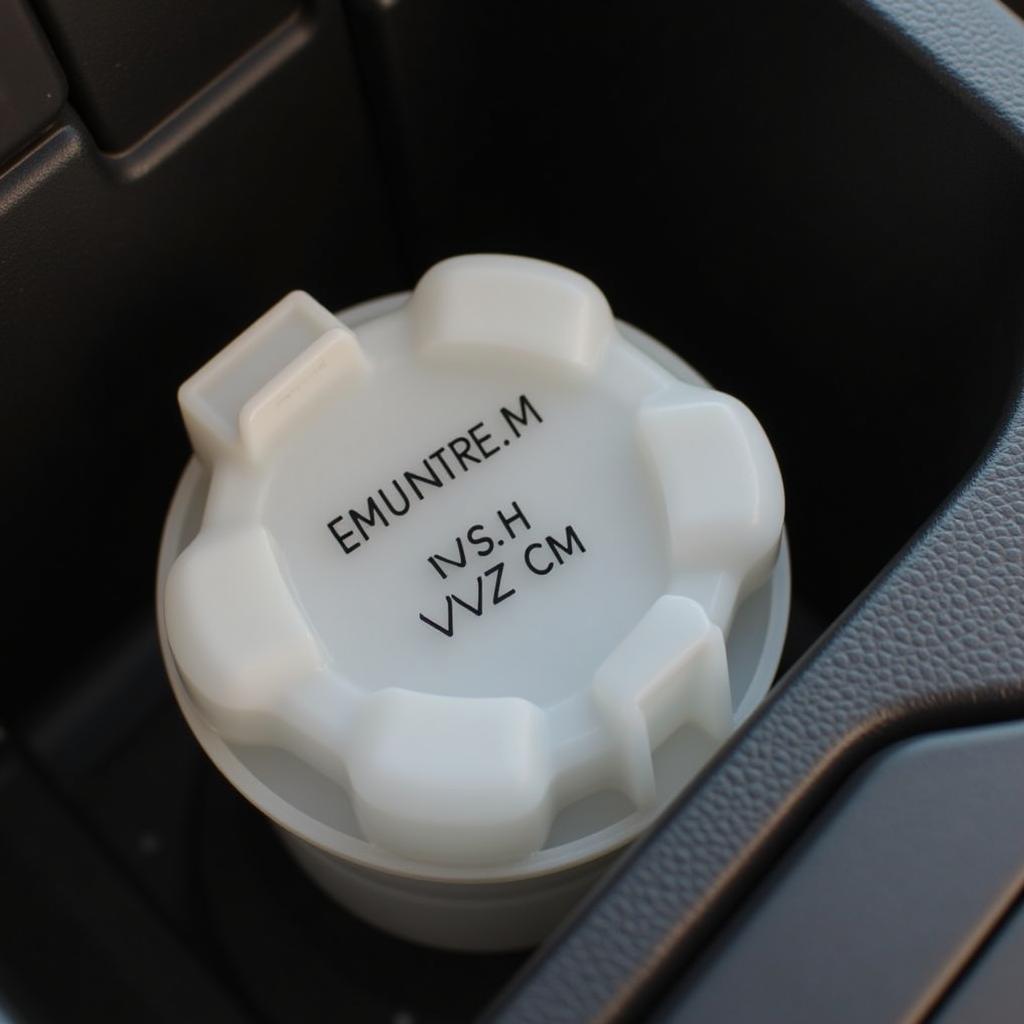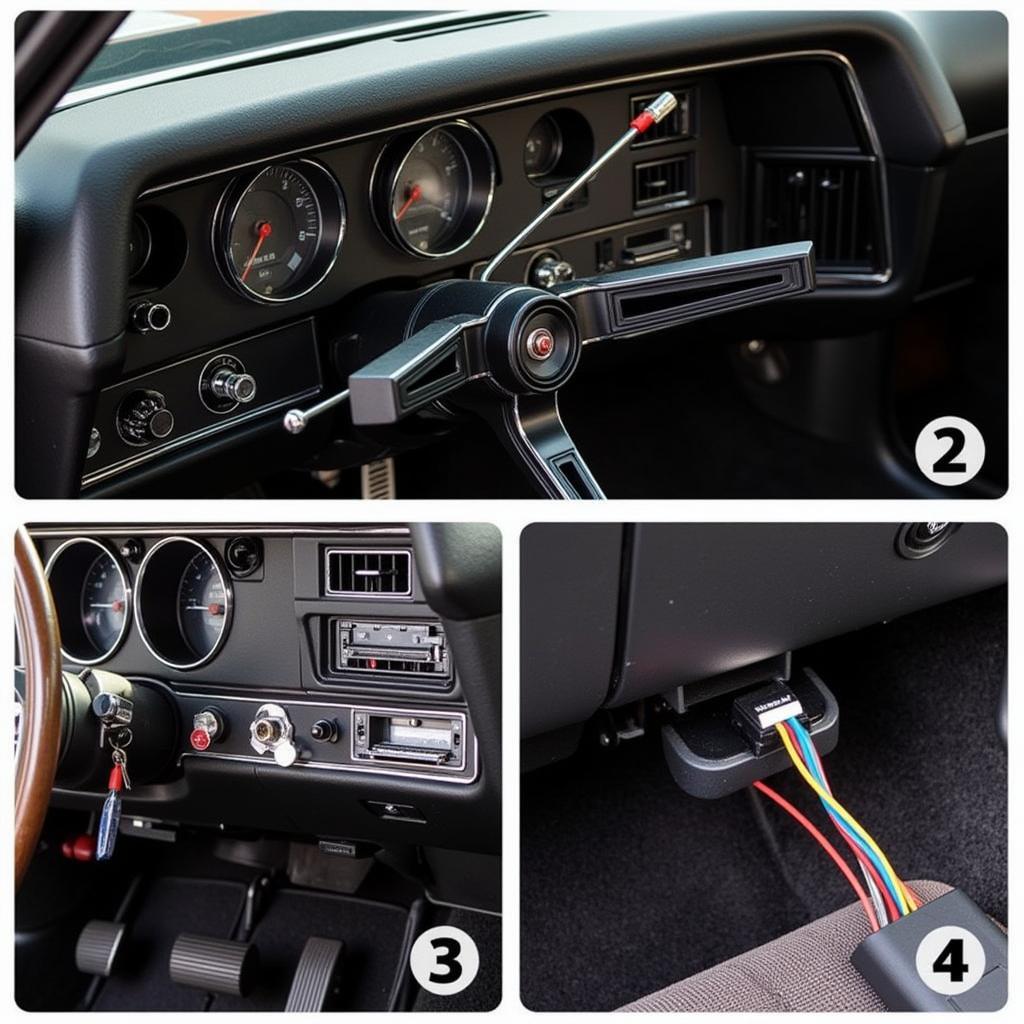The brake warning light on your 2014 Nissan Maxima is a crucial safety feature that shouldn’t be ignored. When illuminated, it signals a potential issue with your vehicle’s braking system that requires immediate attention. This article will explore the common causes of a 2014 Nissan Maxima brake warning light and provide potential solutions to get you back on the road safely.
Understanding Your Brake Warning Light
The brake warning light in your 2014 Nissan Maxima can illuminate for several reasons, some more serious than others. It’s essential to understand what triggers this warning and how to address it accordingly.
Common Causes of a 2014 Nissan Maxima Brake Warning Light
Here are the most frequent reasons why your brake warning light might be on:
-
Low Brake Fluid Level: Brake fluid is the lifeblood of your braking system. As brake pads wear down, the brake fluid level naturally drops. If the level gets too low, the warning light will illuminate.
- Solution: Check your brake fluid reservoir and top it off with the recommended DOT 3 or DOT 4 brake fluid. If the fluid level is consistently low, you might have a leak that needs professional inspection.
-
Worn Brake Pads: Your brake pads are designed to wear down over time. When they reach a certain thickness, the brake pad wear sensor will trigger the warning light.
- Solution: Inspect your brake pads for wear. If they appear thin or you notice a scraping sound when braking, it’s time for a replacement.
-
Faulty Brake Light Switch: The brake light switch is responsible for activating your brake lights when you press the pedal. A malfunctioning switch can disrupt the brake light circuit, sometimes causing the brake warning light to illuminate.
- Solution: A faulty brake light switch usually requires replacement. This is a relatively inexpensive repair that a mechanic can easily handle.
-
ABS Issue: Your Anti-lock Braking System (ABS) is a safety feature that prevents wheels from locking up during hard braking. If the ABS system encounters a problem, it can trigger the brake warning light.
- Solution: Diagnosing ABS issues typically requires a specialized scanner to read error codes. It’s best to take your vehicle to a qualified mechanic or dealer for diagnosis and repair.
 2014 Nissan Maxima Brake Fluid Reservoir
2014 Nissan Maxima Brake Fluid Reservoir -
Faulty Parking Brake Switch: If your parking brake isn’t fully disengaged, or there’s an issue with the parking brake switch, it can trigger the brake warning light.
- Solution: Ensure your parking brake is fully released. If the light remains on, the parking brake switch might need inspection and potential replacement.
What to Do When Your Brake Warning Light Comes On
- Don’t Panic: While the brake warning light signifies a potential problem, it doesn’t always mean immediate danger.
- Assess the Situation: If you’re experiencing other symptoms like a soft brake pedal, unusual noises, or pulling to one side, it’s crucial to pull over immediately and call for roadside assistance.
- Check for Obvious Issues: If it’s safe to do so, check your brake fluid level and look for any visible leaks or damage to the braking system.
- Seek Professional Help: If you can’t identify the issue or are uncomfortable inspecting the braking system yourself, it’s always best to have your vehicle towed to a trusted mechanic or dealer for diagnosis and repair.
Expert Insights
“Many car owners underestimate the importance of regular brake system maintenance,” says Mark Stevenson, a seasoned automotive technician with over 20 years of experience. “A simple brake fluid flush and inspection every 30,000 miles can prevent major headaches down the road. Ignoring a brake warning light, even for a short period, can lead to more extensive damage and costly repairs.”
Conclusion
Addressing a brake warning light promptly is essential for your safety and the longevity of your 2014 Nissan Maxima. While some causes might be minor and easily addressed, others require professional diagnosis and repair. Remember, never ignore a warning light related to your braking system, and always err on the side of caution when it comes to your safety and the safety of others on the road.

